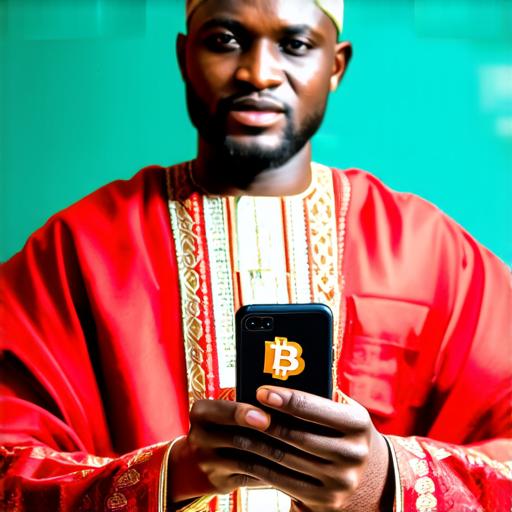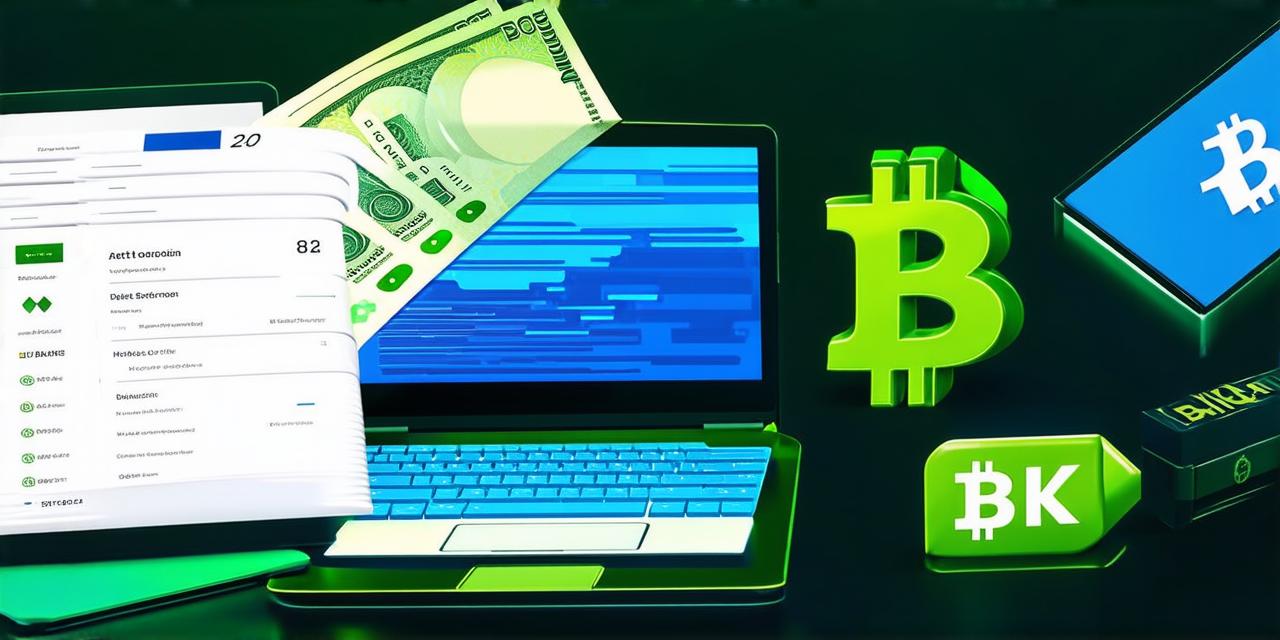Nigeria is a country that is rapidly embracing cryptocurrency and blockchain technology. With a population of over 200 million people, Nigeria has a growing number of young people who are using digital currency to make transactions online.
Understanding Bitcoin and Blockchain in Nigeria
Before diving into the process of buying Bitcoin on blockchain in Nigeria, it is important to first understand what these terms mean. Bitcoin is a decentralized digital currency that operates on a peer-to-peer network. It was created in 2009 by an unknown person or group of people using the name Satoshi Nakamoto.
Blockchain, on the other hand, is a distributed ledger technology that enables secure and transparent transactions without intermediaries like banks. It is the underlying technology behind Bitcoin and other cryptocurrencies.
In Nigeria, blockchain technology has found applications in various sectors, including finance, supply chain management, and e-governance. The country’s government has also started exploring the potential of blockchain for solving some of its most pressing challenges, such as corruption, poverty, and lack of access to financial services.
Buying Bitcoin on Blockchain in Nigeria: A Step-by-Step Guide
Now that we have a basic understanding of what Bitcoin and blockchain are, let’s explore the process of buying Bitcoin on blockchain in Nigeria. There are several steps involved in this process, and we will guide you through each one.

1. Choose a reputable cryptocurrency exchange
The first step in buying Bitcoin on blockchain in Nigeria is to choose a reliable cryptocurrency exchange. Some popular options include Binance, LocalBitcoins, and Remittance Gold. It is important to research and compare these exchanges to find one that suits your needs. Factors to consider when choosing an exchange include the trading fees, deposit and withdrawal limits, and customer support.
2. Create an account on the exchange
Once you have chosen an exchange, you will need to create an account. This usually involves providing your personal details, such as your name, email address, and phone number. Some exchanges also require you to verify your identity by uploading government-issued identification documents.
3. Deposit funds into your account
After creating your account, you will need to deposit funds into it. Most cryptocurrency exchanges accept a variety of payment methods, including bank transfers, credit/debit card payments, and e-wallets like PayPal. The process of depositing funds may vary depending on the exchange you choose.
4. Buy Bitcoin
Once your funds have been deposited, you can buy Bitcoin using the exchange’s trading platform. This involves placing an order to buy a specific amount of Bitcoin at a predetermined price. It is important to note that the price of Bitcoin can be volatile, so it is always a good idea to monitor market trends and place your orders carefully.
5. Store your Bitcoin securely
After buying Bitcoin, you will need to store it securely in a digital wallet. There are several types of digital wallets available, including cold storage, hot storage, and web-based wallets. Cold storage is the most secure option as it involves storing your Bitcoin offline, while hot storage and web-based wallets are more accessible but come with higher security risks.
6. Monitor your Bitcoin investments
Finally, it is important to monitor your Bitcoin investments regularly. This involves keeping track of market trends, news, and updates on the cryptocurrency. By staying informed about Bitcoin and other cryptocurrencies, you can make better investment decisions and maximize your returns.
Real-life Examples of Bitcoin Purchases in Nigeria
To illustrate the process of buying Bitcoin on blockchain in Nigeria, let’s take a look at some real-life examples of individuals and businesses who have made Bitcoin purchases in the country.
1. Individuals
Individuals can use Bitcoin to make transactions online or store their savings in digital currency. For example, a young entrepreneur in Lagos can use Bitcoin to purchase goods and services from online stores or invest in other cryptocurrencies.
2. Small businesses
Small businesses can also benefit from Bitcoin by accepting it as payment for their products and services. This can help them reach a wider customer base and reduce the costs associated with traditional banking systems. For example, a coffee shop in Abuja can accept Bitcoin payments from customers who prefer digital currency over cash or credit cards.
3. Startups
Startups can use Bitcoin to fund their operations and raise capital from investors around the world. This can help them access funding more easily and quickly than traditional venture capital firms. For example, a fintech startup in Kano can use Bitcoin to accept investments from angel investors and crowdfunding backers.
FAQs on Buying Bitcoin on Blockchain in Nigeria
To further clarify the process of buying Bitcoin on blockchain in Nigeria, here are some frequently asked questions:
1. Is it safe to buy Bitcoin in Nigeria?
While there are risks associated with any investment, including Bitcoin, reputable exchanges and wallet providers have implemented security measures to protect their users’ assets. It is important to do your research and choose a reliable exchange and wallet provider before making any transactions.
2. How can I buy Bitcoin without a bank account?
If you don’t have a bank account, you can still buy Bitcoin using e-wallets like PayPal or local payment methods like mobile money services. Some exchanges also accept cash deposits at their physical locations.
3. Can I buy Bitcoin anonymously in Nigeria?
Yes, it is possible to buy Bitcoin anonymously using certain exchanges and wallet providers, but this practice may be subject to legal restrictions in some jurisdictions, including Nigeria. It is always a good idea to comply with local laws and regulations when making transactions.
4. How do I store my Bitcoin securely?
There are several ways to store your Bitcoin securely, including cold storage wallets, hot storage wallets, and web-based wallets. It is important to choose the most appropriate storage method for your needs based on factors such as accessibility and security.
5. Can I buy other cryptocurrencies in addition to Bitcoin?
Yes, many exchanges in Nigeria offer a variety of cryptocurrencies, including Ethereum, Ripple, and Litecoin, among others. You can buy these currencies using the same process as buying Bitcoin.
Conclusion: The Future of Bitcoin and Blockchain in Nigeria
Nigeria is a country that is rapidly embracing cryptocurrency and blockchain technology. With a growing population and a burgeoning entrepreneurial culture, the potential for Bitcoin and other digital currencies to transform the country’s financial landscape is significant. As more individuals and businesses adopt these technologies, we can expect to see further innovation and growth in the Nigerian cryptocurrency space.
In this article, we have taken you through the process of buying Bitcoin on blockchain in Nigeria, and we hope that you have found it informative and helpful. Whether you are a developer looking to expand your skillset or an entrepreneur seeking new ways to grow your business, understanding the basics of cryptocurrency can be a valuable asset in today’s digital economy.
